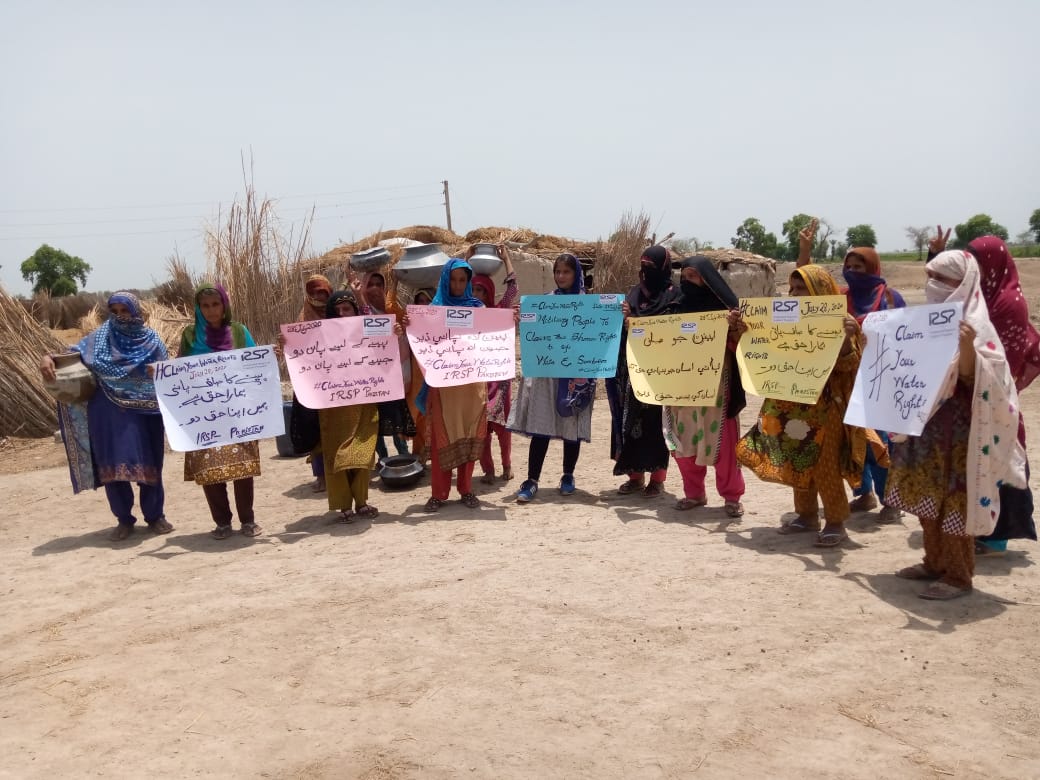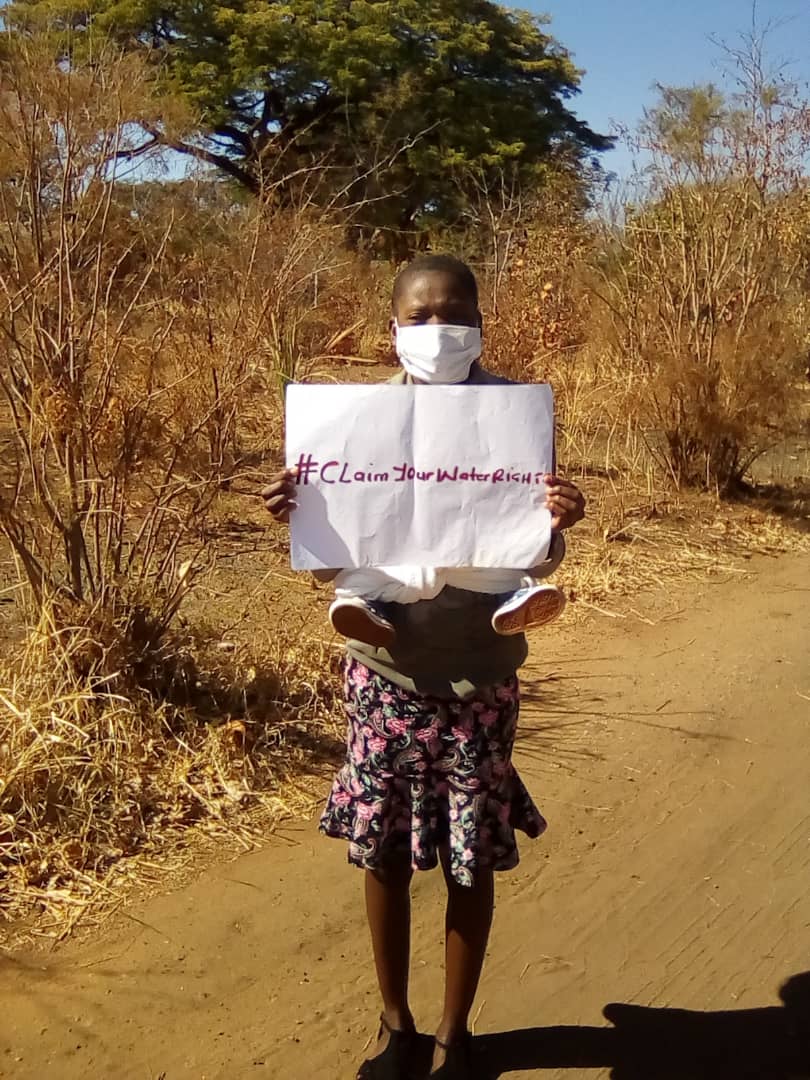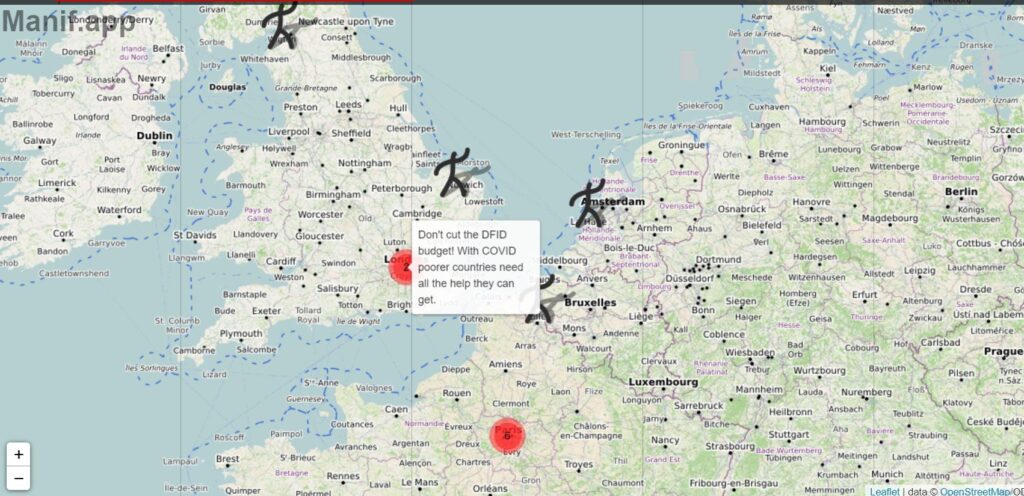28 July marked the tenth anniversary of the human rights to water and sanitation. Without a vaccine, handwashing remains the most effective way of slowing the “still accelerating” Covid-19 pandemic. Yet billions of people cannot protect themselves or their family from infection: how can you wash your hands if you don’t have safe water?
To highlight this grave injustice, End Water Poverty and its coalition members united for a day of global protest. Activists and civil society across five continents and 20 countries – from France to Honduras, from Madagascar to Pakistan – joined digital demonstrations on manif.app while other non-government organisations held small socially-distanced rallies.


This strong display of international solidarity demonstrates that the water frontline is everywhere: access to water and sanitation is not a ‘developing world’ issue. Rich nations continue to deny marginalised communities’ rights. In England, around 10,000 Gypsies and Travellers struggled to access water or sanitation during lockdown. In the US, Black and Latinx households are twice as likely to lack indoor plumbing than White households. In metropolitan France, 1.4 million people live without safe water, while 7.5 million people live without adequate sanitation facilities.

Friends, Families and Travellers’ Sarah Sweeney said:
“A chronic national shortage of Gypsy and Traveller sites in England means that over 3,000 families have no lawful place to stop. This makes access to water and sanitation tricky at the best of times, but during lockdown, the closure of leisure centres and public toilets meant that families living in roadside camps were often left high and dry without enough water to cook, clean or drink. Nomadic communities have lived in England for centuries – it’s disgraceful that the infrastructure isn’t in place to ensure that everyone can access water and sanitation during a pandemic.”
We The People of Detroit’s Monica Lewis-Patrick said:
“Water rights activists in Detroit have been calling for a moratorium on water shutoffs for over ten years. We’ve always known that depriving people of water is an inhumane practice. Public health officials reported that the coronavirus is impacting marginalized and under-resourced communities at an alarming rate, with Detroit a hot spot in the US. It is not alarming to us. Since 2014, there have been around 141,000 disconnections in Detroit; in January of this year, at least 9,000 households still did not have access to water. How can these families wash their hands for protection against COVID-19 without access to water?”
Local, national, and international officials must plan to protect all global citizens from future pandemics. This is only possible if governments allocate resources to water infrastructure and safe affordable water for all.”
Coalition Eau’s Sandra Metayer said:
“A strong political mobilisation must emanate from the French government in order to integrate the human rights to water and sanitation into domestic legislation and to mobilise local authorities in favour of the rights to water and sanitation in France – in particular by facilitating the implementation of an equitable and fair pricing system at national level. France, once a champion of international cooperation for water, must support the implementation of the human right to water and sanitation through ambitious and effective Official Development Assistance for the water sector.”
End Water Poverty’s Al-hassan Adam said:
“We cannot address the water crisis without confronting systemic racism and discrimination. It shouldn’t take a pandemic to realise that the denial of some people’s human rights affects us all. Diseases like Covid-19 respect no national boundaries. In an interconnected world, the best way to minimise and slow their spread is to realise universal access to safe water and sanitation. Water is a human right, not a commodity. We must use this fantastic show of global solidarity to keep pushing governments to do their duty.”
The global protests are part of End Water Poverty’s #ClaimYourWaterRights campaign.